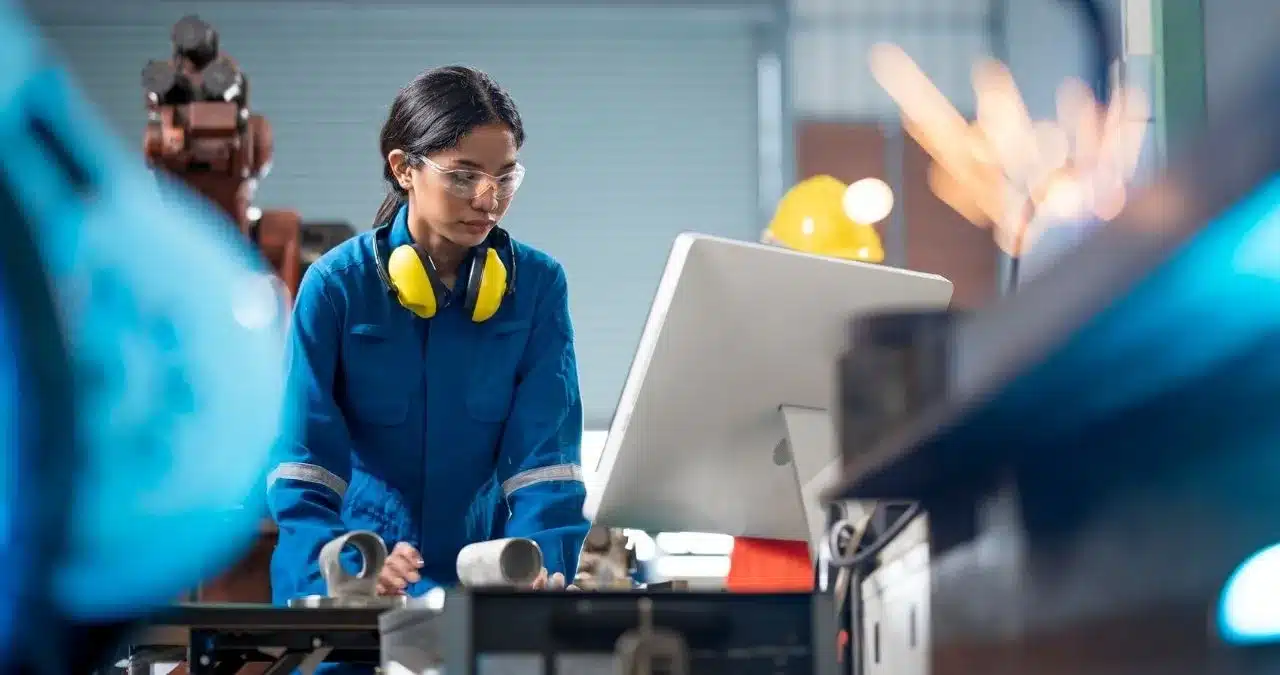Technological progress has always been crucial in shaping the world of manufacturing. In recent years, this progress has accelerated due to the development of numerous innovations in various fields.
Let’s explore six technologies that are revolutionizing manufacturing.
#1 Cloud-based ERP solutions
By leveraging cloud computing, ERP systems are becoming more agile, flexible, and powerful.
Cloud-based ERP systems have numerous benefits. For starters, they eliminate the need to store large quantities of data on physical servers. Moreover, they offer a degree of scalability that traditional ERP systems can’t match. This allows businesses to adjust their usage based on customer demands and other seasonal trends.
Thanks to cloud-based ERP solutions, manufacturers can gain access to comprehensive and previously unavailable real-time information across different levels of their operations. This helps them identify areas where improvements can be made to stay competitive and boost profitability.
#2 3D printing
This revolutionary technology allows manufacturers to create three-dimensional objects from digital designs.
It allows operators to create unique designs, custom parts, or even entire products that would be unachievable with traditional manufacturing approaches.
Another advantage of using 3D printing is faster prototyping. By leveraging this technology, manufacturers can create prototypes in record times, positively impacting the speed of the overall production process. Moreover, this allows manufacturers to identify problems early in development and make changes before starting production.
Reducing waste is another positive element resulting from the use of 3D printing technologies. These solutions only employ the necessary material, meaning there is no need to waste additional material and energy during production.
Other benefits of using these technologies include ease of replication and cost savings. With advancements in technology, commercial 3D printers are becoming more affordable and accessible to businesses of all sizes.
#3 Internet of things (IoT)
The Internet of Things, or IoT, describes a network of physical devices that feature sensors, software, and an internet connection.
Manufacturers can leverage these technologies to obtain data on all aspects of the production process. These insights can then be used to make better decisions.
For example, IoT technologies allow manufacturers to receive real-time data on production lines and equipment, allowing them to spot problems and irregularities earlier to avoid complications and increased costs.
Manufacturers can also improve product quality and optimize production schedules through IoT devices. Thanks to analytics based on product data, producers can decide which machines need attention or streamlining to achieve maximum efficiency. This way, manufacturers can adjust their operations accordingly without the need to monitor each stage of the production process.
IoT can also increase safety in manufacturing facilities by helping manufacturers detect potential risks and alerting workers before any incident occurs. Using sensors can detect issues such as overheating machinery and gas leaks before they become a hazard to the workforce or the environment.
#4 AI and machine learning
Among the most important innovations of our century, we find AI and machine learning. The former refers to a computer system’s ability to perform tasks usually associated with human intelligence, while the latter is the subset of AI that focuses on the ability of the computer system to learn from data.
For example, AI-driven analytics tools can help manufacturing companies understand buying patterns and use this information to develop more effective marketing strategies.
Machine learning algorithms can be employed to improve process automation in factories. They can be used to detect anomalies in production lines readily. Another important application of these algorithms is optimizing product designs by analyzing customer feedback and suggesting improvements.
#5 Robotics
The advancements achieved in the field of robotics have allowed enormous improvements in manufacturing processes.
Robotics refers to the use of computer-controlled machinery to perform operations that humans would otherwise execute. Manufacturers use robots to automate complex tasks, such as assembling, painting, and packaging.
This technology allows manufacturers to make their production processes faster and more accurate while decreasing costs and boosting business profitability.
Robots also boost safety and reduce the risk of serious accidents due to their ability to operate in hostile environments where it would be unsafe for employees to work.
Finally, employing robots in production processes allows manufacturers to boost flexibility. By automating certain operations, they can readily adapt production lines to new products and change consumer demand without having to invest in new machinery or retrain factory staff.
#6 Nanotechnology
Nanotechnology is a field that focuses on manipulating matter at the nanoscale. Thanks to these technologies, we now have advanced materials and devices that improve various manufacturing aspects.
By leveraging its precise control over atomic-scale structures, nanotech can be used to create stronger and lighter materials with unique properties. One example isusing nanoparticles to increase the durability and strength of polymers. This enables them to resist heat, corrosion, and wear better than traditional plastics.
Self-assembling nucleic acid molecules (SANs) also offer great potential as autonomous nano-machines in production systems thanks to their ability to perform complex tasks such as sorting cells or objects according to their size or structure.














Add Comment